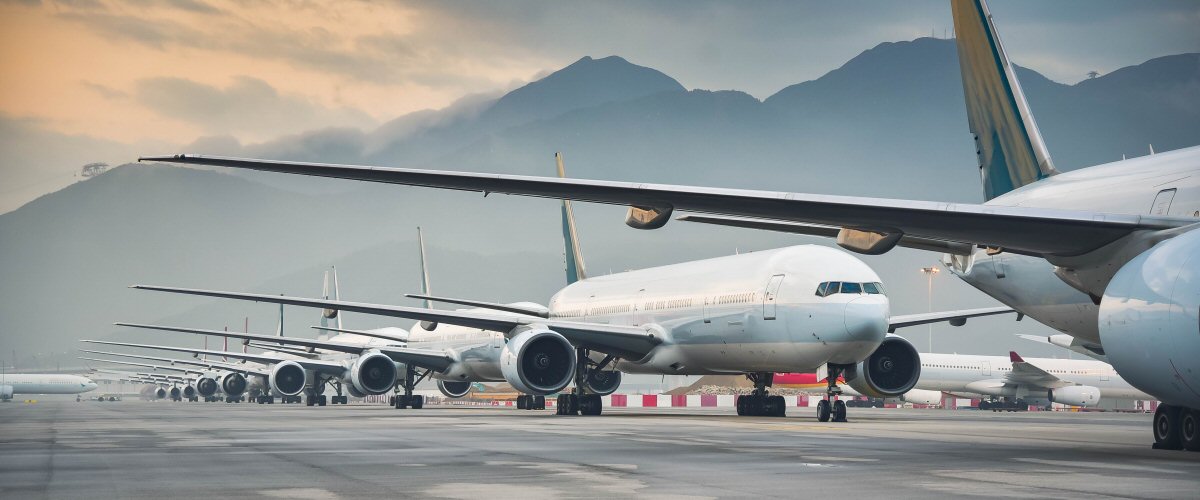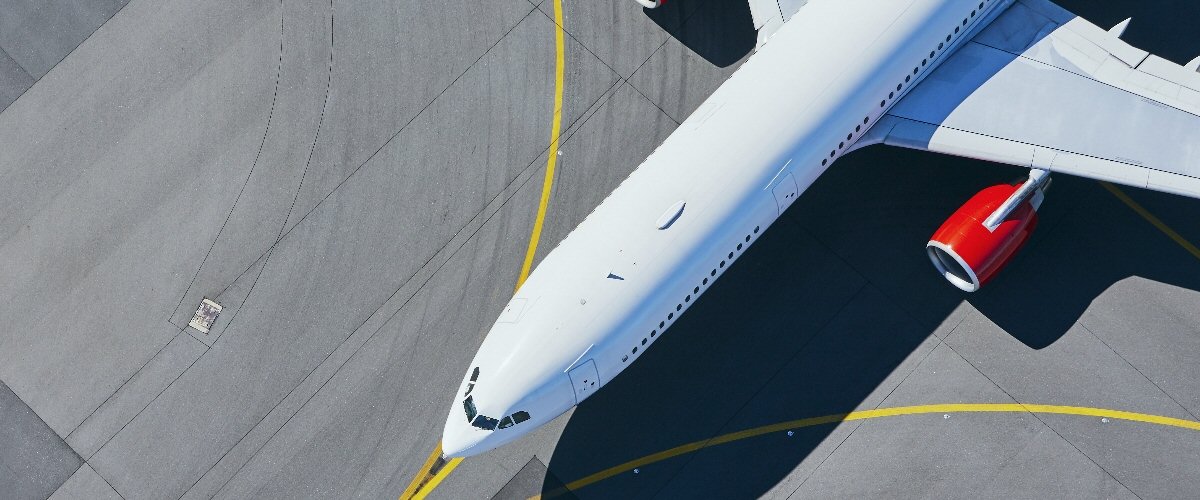Date: 19/01/2024 (Edition 1) Download PDF
.png)
Happy New Year to everyone in the industry. I hope 2024 proves to be a healthy one for all of you. That is except for the last week in January as a few thousand of us brave the icy winds in and around the Shelbourne & RDS and hold back from a perfect dry January resolution.
What’s likely to be the main theme this year at the conferences? Well, judging by the sheer number of keynotes with the lessor CEOs, the room should be quite full on Monday. Clearly, the message is going to be one of exuberant positivity! So, no change there then. That is until the OEM panel comes on!
However, in terms of what I expect to hear from the lessor CEOs and the outlook for 2024, increased trading is something I’m expecting to see this year, as is the continued movement of values and lease rates. The fall guy, however, continues to be the supply chain, a subject we are bored to death with. Last year ended with the hope that the GTF issue wasn’t going to be quite as bad as initially thought, whilst we enter this year with yet another MAX issue to potentially contend with. The pain goes on… and on… and on …
That being said, aircraft are being delivered, just not quickly (or reliably) enough to take full advantage of apparently unshakable passenger demand before the impact of inflation stops everyone in their tracks. Our memories tell us that the cliff is out there – just beyond the fog in fact. And that is central to the problem. The current consumer growth defies traditional Western economic scepticism. The price of everything goes up, yet demand remains high? Whilst on the aircraft investment side, pricing and lease rates have been shooting up yet caution remains amongst Investors until they become more comfortable with reading this cycle.
Still, that’s the fun of the cycle. We all know how this plays out, but the finer details are still being worked out.
Just a few things to highlight for the coming two weeks. Myself, Mike and Dan will be presenting IBA’s latest Market Update next Wednesday. A large group of the IBA team will of course be in Dublin so please reach out if you haven’t already done so. The same trio will be hosting a Breakfast Briefing at 8 AM on the Tuesday morning (30th January), just across from the Shelbourne at the Royal College of Surgeons in Ireland. Instead of the normal presentation format, we will be doing this as a fireside chat panel to stimulate dialogue. Several of us will also be presenting at both Airline Economics events during the week. Mike is on the Appraiser panel on the Wednesday morning, whilst I have been given the 4 PM slot on Wednesday to explore the whole supply & demand effect. I promise to not make it heavy!!
Sláinte
From talking about Alaska before the holidays, the story shifts to Akasa, or rather Boeing and their fresh issues to greet 2024. The aviation news of the 737-9 loose bolts spread into the mainstream news because of the not-forgotten 2019 MCAS issue. Akasa’s order doesn’t actually include the affected variant (made up of an unconfirmed split of 737-8-200s and 737-10s) but they will have no doubt used it as a negotiation chip. Of course, one needs to look at the other recent orders though…
As soon as IBA’s newsletter (now rebranded as The IBA Insider!) took a break it seems airlines and lessors went holiday shopping Lufthansa (80), Avolon (140), easyJet (157) and Turkish (220, finally) ordered 597 aircraft between the four of them in December. With options, that number rose by another 200. Before either of the Boeing quality issues (there was also a rudder bolt issue, that was revealed less dramatically) reached news, Airbus accounted for 517 (87%) of those orders. That included Turkish Airlines’ 70 orders for the A350. Widebodies had been a safe haven for Boeing amid the great territory loss in narrowbodies. However, the backlog share of Airbus is now up two percentage points from November to 38%. Strictly speaking, you could say they were roughly even if you count Airbus finally striking off Iran Air’s 97 largely A330ceo order, but I don’t think anyone believed in that for years!
The 737-9 issues were fortunately narrow in breadth in the short term, however, it does not end there. Another interesting story in that order backlog is that over half of those orders (351 aircraft) were for the A321. Earlier in 2023 Piotr talked about an upgauging trend; that has continued. Ryanair has 150 737-10s on order but CEO, Michael O’Leary highlighted his belief that the 737-10’s certification will now get pushed back to 2025 because of the 737-9 issue. With Boeing’s answer to the A321 being delayed, they are likely to lose even more ground in the narrowbody space.
Turning to the other side of the story in Akasa Air, a 150 aircraft order for the carrier is very bullish, especially since they only have 22 currently in service and already 54 in production. This is a ratio of 927%, over treble that of IndiGo (275%), despite IndiGo’s 984 aircraft order backlog. Akasa will have to manage that risk being priced into their sale and leaseback terms on top of any pre-delivery payments Boeing may demand. India is definitely one of the most exciting growth markets at the moment, but it is also the setting of an upcoming great fight between IndiGo and Air India Group. Akasa may have bitten off more than they can chew.
Last November, IBA mentioned the serious regulatory threat challenging the potential merger between JetBlue and Spirit Airlines. This might have just tempted fate too much as two months later a US federal judge has ruled in favour of the Department of Justice, effectively stopping the transaction in its tracks.
JetBlue has argued that the merger is the only way to save Spirit Airlines from failing by creating effective competition against the “Big Four”. However, the DOJ’s prevailing argument was that the merger would eventually result in a fare increase, as leaked documents revealed plans to bring Spirit’s fares in line with JetBlue’s. The possible fare matching would result in a 40% fare increase, which wasn’t deemed to be in the consumers’ best interests.
The ruling might turn out to be a death blow for Spirit Airlines, for which JetBlue was seen as a knight in shining armour. After a series of unprofitable quarters, the airline saw its share price plummet a further 60% after the merger news broke in on Tuesday. Spirit might not be the only one in danger, as the US market is expected to continue cooling down in 2024. With yields falling Frontier, JetBlue, and Spirit reported Q3 2023 operating margins of -6.1%, -6.6% and -15.0% respectively.
With the American antitrust body flexing its muscles, all eyes will undoubtedly now turn to the merger between Alaskan Airlines and Hawaiian Airlines, which might be next on the chopping block.
Airline consolidation seems to have more traction in Asia, however. Following their recent exit from financially distressed status, AirAsia is poised to be sold by Capital A to AirAsia X with plans to combine their short and long-haul divisions. An analogous merger is being considered by Thai Air Asia and Thai Air Asia X. Additionally, the proposed merger between Korean Air and Asiana Airlines is reportedly expected to be approved by the European Commission after a long investigation. If true, that would leave only the US and Japan standing in the way. The question is whether the US will challenge this deal as zealously as the transactions on the domestic market.
Our weekly update looks at the key trends and market indicators using data and analytics provided by IBA Insight.


Introducing IBA Insight, IBA NetZero and IBA Airlines – aviation's one-stop shop for intelligence. You need quick, intuitive access to the most accurate commercial aviation data. Our products are designed to provide you with seamless and simple analysis, prompting better asset decisions, enhanced risk management, and a full understanding of aviation decarbonisation strategies.

With our large team of award-winning ISTAT-qualified appraisers and over 35+ years' proprietary data, IBA is a leading player in the valuations market. Working globally, we offer independent, impartial opinion and advice on the value of a range of asset types including aircraft, engines, helicopters, freighters and air cargo, landing slots and spares. Always striving to exceed clients' expectations, IBA's objective judgement supports the required security needed for loans, asset repossession, commercial development and remarketing.

IBA works with leading aircraft and engine leasing companies from around the world. Our depth of industry knowledge informs our expert advice so we can support clients through the investment cycle, inspiring confidence at every stage of their journey. From valuations, fleet selection and portfolio development to redelivery and remarketing at lease end, we accompany clients through every risk assessment and asset management activity during the life of the lease.

Aviation investment can be an intricate affair and, with significant financial stakes involved, leaving things to chance is not an option. Whether you are investing for the first time or an established player in the market, IBA can help you cut through the complexities of the asset class to better understand investment opportunities. We can work with you to support portfolio development, diversification and to meet strategic needs.

For over 30 years IBA has worked with global and regional airlines providing valuation and advisory services, aviation data intelligence and aircraft and engine redelivery support. Working collaboratively on a variety of aviation projects spanning the world, we fulfil clients' additional resource requirements and provide project management support wherever and whenever needed.

We take a resourceful approach to litigation support and dispute resolution, identifying thoughtful solutions that are tailored to our clients' legal strategy. Our access to over 30 years of proprietary aviation data, regular involvement in strategic M&A and aircraft management expertise affords us regular access to the typical areas of contention between parties. IBA assists clients directly or via their legal teams across many aspects ranging from insurance related settlement for aircraft damage or loss, to disputes between lessors and lessees - often at redelivery.